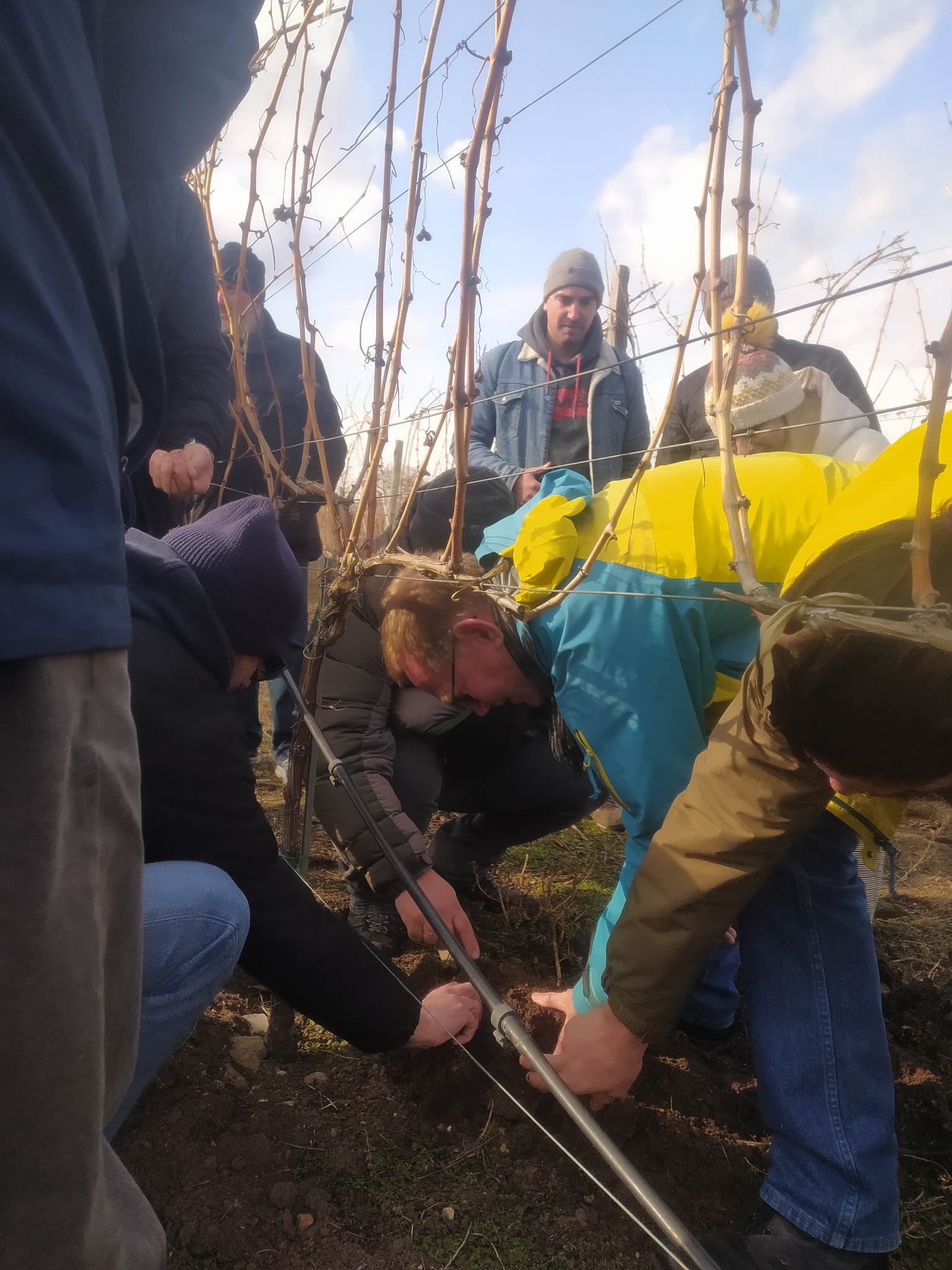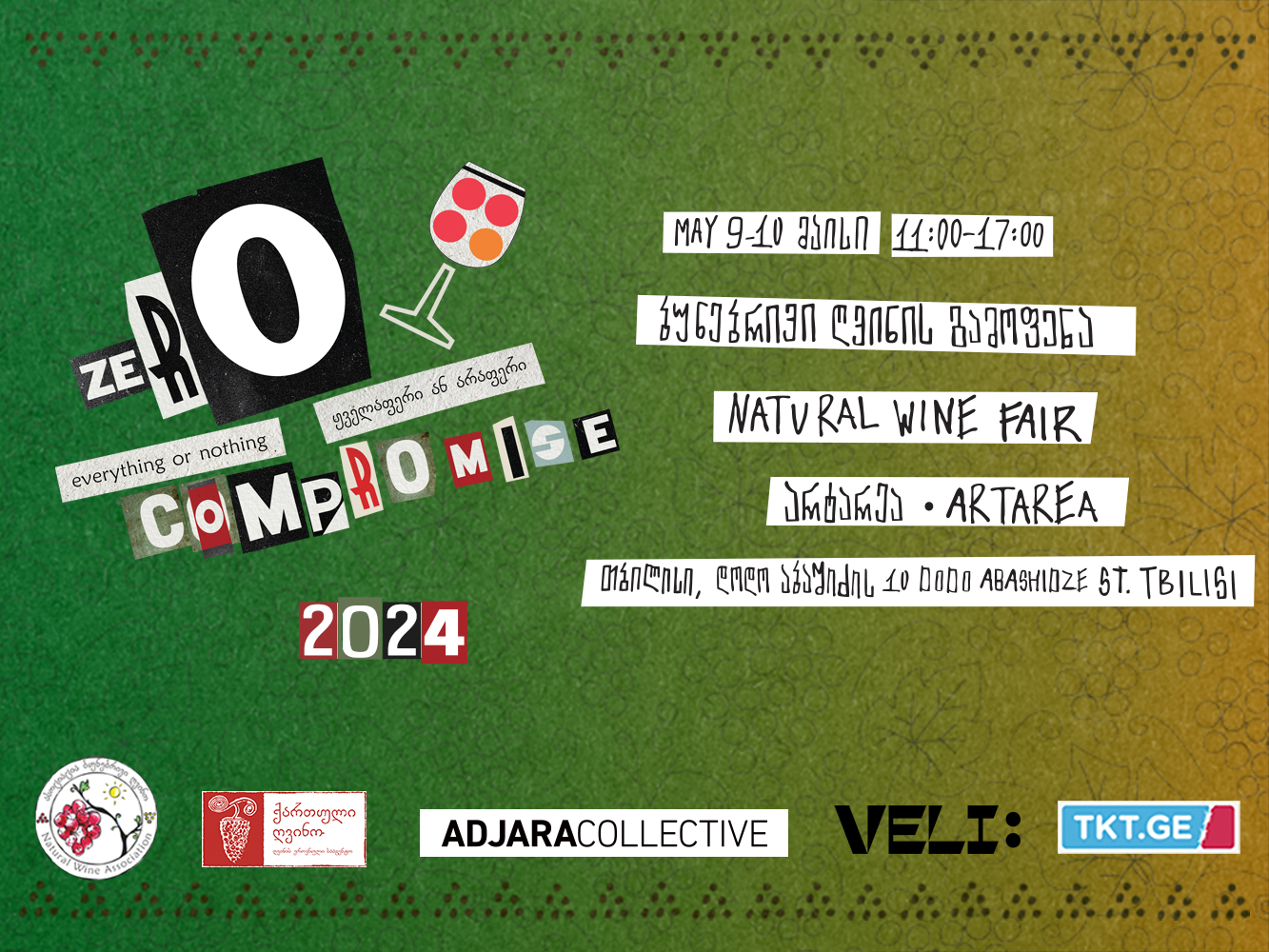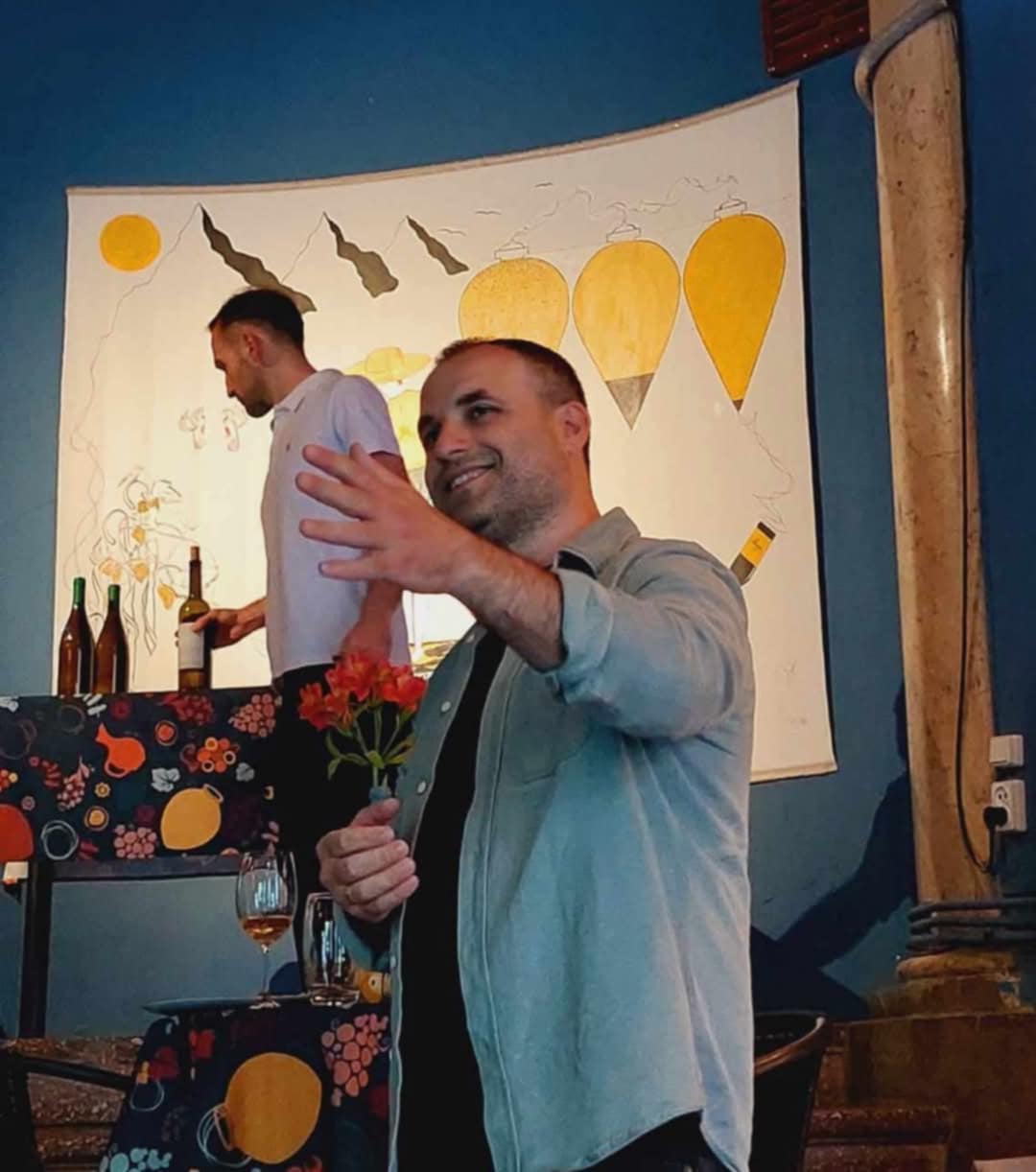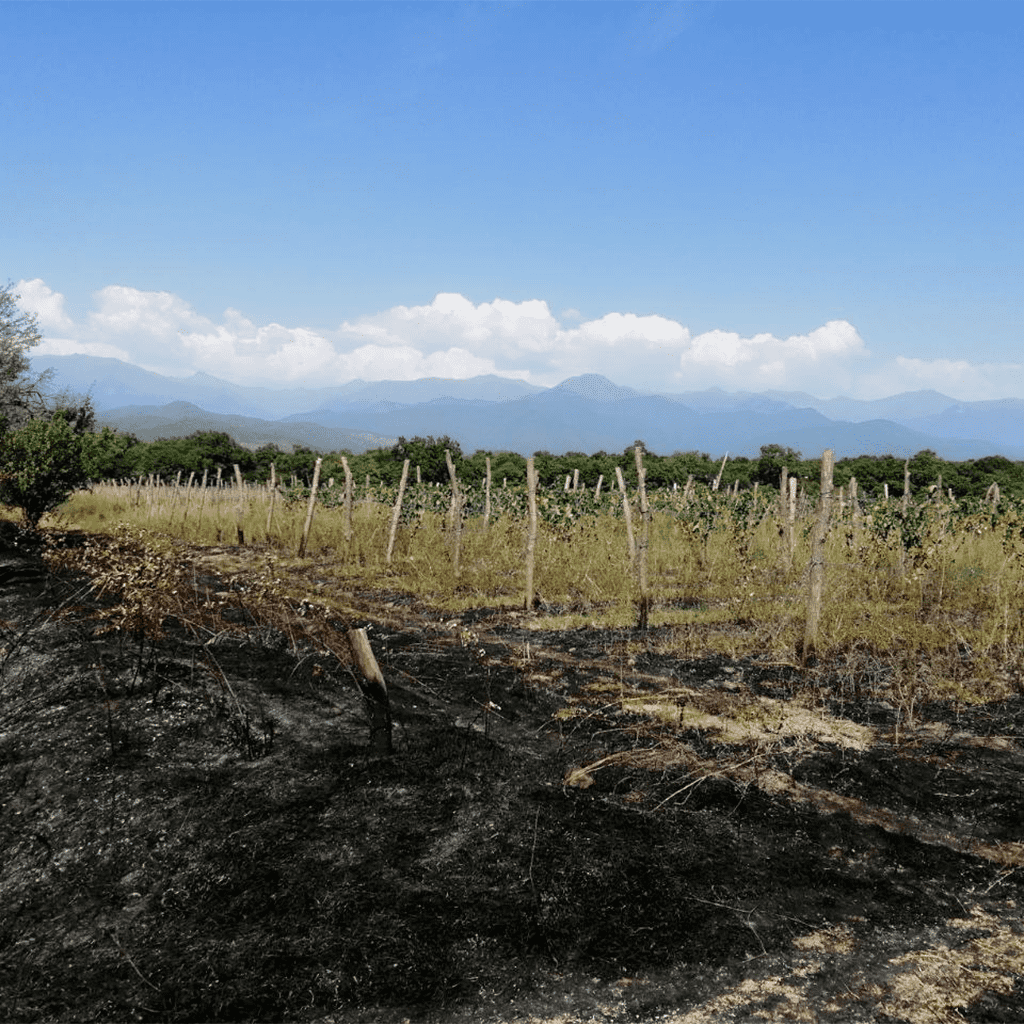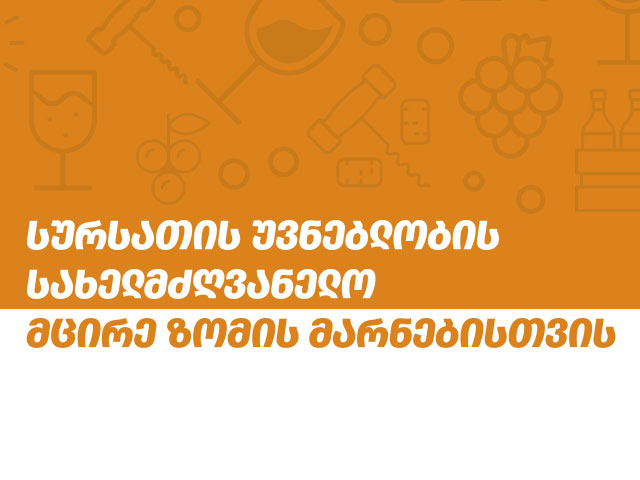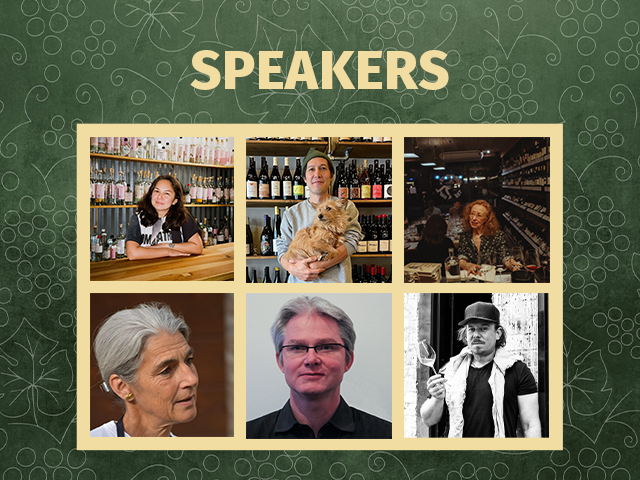News . 27-02-2023
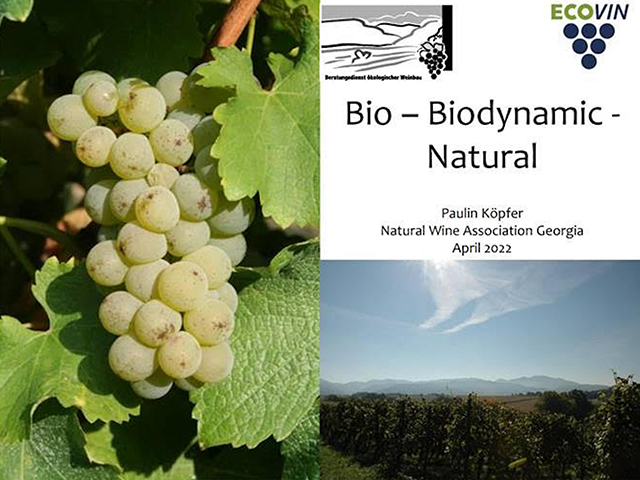
The winemakers of the Natural Wine Association met with a German wine expert
On April 13, with the support of GIZ, members of the Natural Wine Association met with the German natural wine expert Paulin Köpfer. During the online meeting, the expert spoke about several popular issues, such as: Organic winegrowing-winemaking, state and private standards, the definition of natural wine and current world trends in this field, etc. Paulin Köpfer will assist the Natural Wine Association to train members as well as improve the quality of internal inspections of vineyards and wineries for the next year.
As Paulin Köpfer began the meeting, she pointed out to winemakers that organic winegrowing can have different goals and purposes. If we want quality and healthy grapes, we have to consider the economic aspects and discuss what is more important - the quality of the grapes, the quantity of the harvest, or both. A quality harvest potentially means quality wine. This, in turn, will lead to opportunities to find new markets and increase financial income.
For the organic winegrower, energy costs are reduced and pollution is minimized. Organic winegrowing helps to slow down climate change. It coexists with and helps nature and this increases people's motivation. It also helps to diversify and develop the culture of winemaking around the world. Eventually everyone realizes that the earth is for everyone, and when even one person is involved in organic winegrowing, they are doing a good thing for the whole world.
It is important to enjoy working in the vineyard. But it is also necessary that the consumers like the wine we produce.
According to Paulin Köpfer, there are two clear approaches to organic vinegrowing and winemaking. Firstly, it is a systematic approach, where the winemaker views the situation as a whole. The quality of the grapes, the interests of the customer, the method of making the wine, and more are equally important to him/her. In this case, all the processes (growing grapes, making wine, or others) serve a common purpose. This is the most modern and future-oriented method. The second approach involves using natural energy sources as much as possible in the vineyard. For example - solar energy. We use solar energy to promote the multiplication of microorganisms in the soil, which is food for the plant and the plant grows qualitatively in this way. We must remember that different vineyards and different wineries/cellars have their own specific conditions, climate, and peculiarities, which must be considered.
Thus, the winemaker has to understand well what results can be obtained when using a particular technique. There are general principles that must be observed. These principles should also be communicated to consumers so that they know what to expect from a wine made using such a technique.
The German expert on natural wine explained that there are different levels of organic wine quality label in the world. Since there are different opinions and interpretations regarding the production of Qvevri wine and natural wine in general, something has to be agreed on all the time. Therefore, the standards developed by the Natural Wine Association are the most important and must be observed by all members. According to Paulin Köpfer, in some cases, the requirements set by the Natural Wine Association are stricter than the EU regulations on organic winemaking.
There are several main types of wine in the world today: 1. Conventional wine, in the making of which all methods are permitted. 2. Bio-wine, for the preparation of which there are certain rules. 3. Biodynamic wine, for the preparation of which there are even more rules and restrictions; 4. Natural, i.e. natural wine, to be made without any additional interventions and impurities (only a small amount of sulfur is allowed to be added to the wine).
In the end of the meeting, winemakers asked Paulin Köpfer questions about the amount of sulfur used in wine, wine diseases, vineyard cultivation, wine sediment, and proper washing of wine vessels.
A similar meeting of foreign wine experts with Georgian winemakers, organized by the Natural Wine Association and supported by GIZ, will be held in the future.
